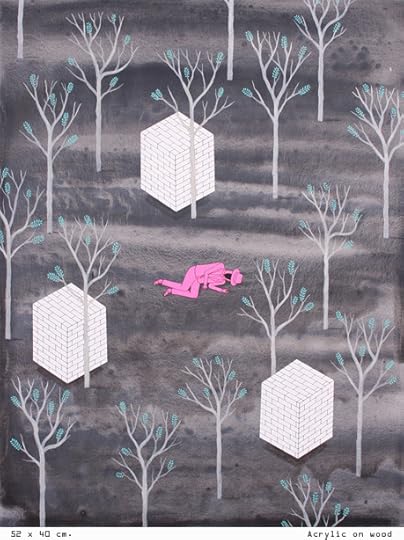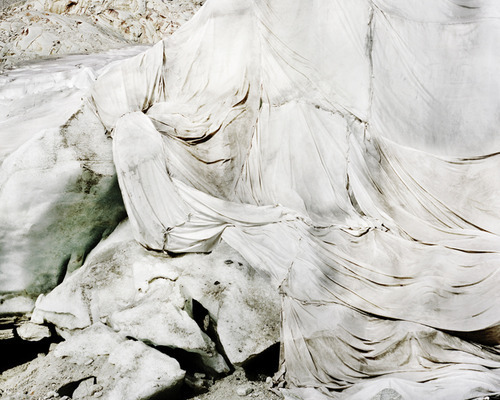Emily M. Danforth's Blog, page 16
April 19, 2014
"Perhaps you can write better if you leave the mistakes."
- Jorge Luis Borges (via theparisreview)
exhibition-ism:
The playful illustrations of Catalan artist...
April 16, 2014
"'Collective' or otherwise, I think art, as a pursuit, has a place and purpose in the 'public'..."
- This week, writer and artist Nathaniel Bellows answers my PEN Ten. (via luxlotus)
likeafieldmouse:
Benoit Jeannet
April 15, 2014
For those who have been so lovely to inquire: I am hard at work...
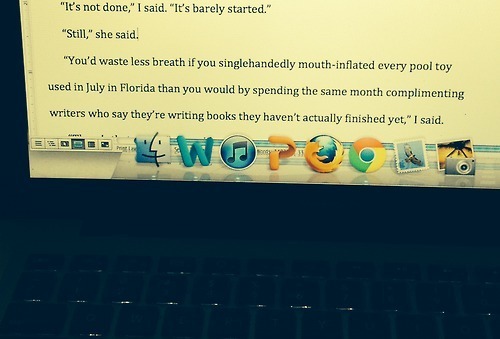
For those who have been so lovely to inquire: I am hard at work on another YA novel. Before I was just at work. But now it’s hard at work, I promise. It’s contemp and very celesborific. One of its two narrators is a wunderkind writer named Sylvan. In the image above you can read her expressing concerns that align pretty well with my own in regard to saying very much about WIPs. Though, of course, Sylvan’s take is rather more sharp-tongued than mine.
My reluctance to talk about what I’m working on, even when I’m nearing completion, probably has something to do with several superstitions that I’m too lazy to properly examine. But I do appreciate the interest from folks who have been interested. I hope you’ll stay tuned for awhile longer.
April 14, 2014
fer1972:
Paintings by Anna Wypych Many thanks to lukola for...
politicsprose:
Junot Diaz Responds to Student Email...


Junot Diaz Responds to Student Email Concerning a Ban on “The Brief Wondrous Life of Oscar Wao”
Subject: Re: The Banning of the Brief Wondrous Life of Oscar Wao at West Essex Regional High School
Ellie
i just got this email. im in japan. sorry for the delay.
im troubled of course by any censorship. but im heartened by you and your peers strong defense of the book and of your right to read art, free from outside interference.
take one passage out of the bible in context and one could argue the book is all about promoting any sort of deviance.
part of the issue is the parents seem to misunderstand the role of art. this happens a lot in society where we have very little arts education. and the reason why this is beyond troubling is that arts education has dwindled every year in the US due to budget cuts and the instrumental market logic that rules education these days. and when there is art taught parents and outside groups are so threatened they attempt to disrupt it. which is a heartbreaker since art’s goal is never to corrupt or demean but to put people in touch with their human selves—being human is not about being perfect or pure—its about being vulnerable and weak and vulgar and yes it also involves sex. but for your argument never forget: art has among its many aspects a transgressive function. it says the thing that a society fears to say, hates to say and wishes no one will say. what people who push censorship are really pushing is to create a silence. they want no questioning of “the way things are” and the reveal a profound mistrust of their youth and of the people who teach them.
but to speak most specifically about the sexual content of the book.
this is a novel that charts that most nightmarish of American traumas: the trauma of rape inflicted on black female bodies as an outcome of the plantation and post-plantation logic of white supremacy. Yunior doesnt describe the DR as a plantation by accident; he’s pointing out to how the DR is not only the basis but the continuation of the forces that forged the Americas—the enslavement and sexual domination of black bodies. a history that so few of us like to touch. a history that exists mostly in silence.
this is a novel that charts the consequences of sexualized colonial violence (the rapeocracy of the plantation and post-plantation) on the colored bodies of entire communities: the women, the men and even children of the survivors. the titular character oscar is the child of a rape survivor but not just any rape survivor—his mother Belicia is explicitly raped inside the plantation regime of trujillo by his agents. flashforward twenty years and one immigration and you have oscar’s body and psyche, like lola’s body and psyche, impacted by this violence and its aftershocks even though neither of them lived it directly. this is called the intergenerational transfer of trauma. oscar and lola are prototypical americans, shaped by a violent history they know very little about. their history is our nation’s history. think about it: is oscar’s problem with girls and the sexual intimacy they represent an outcome of him being fat and a nerd or is it an outcome of the unprocessed history of rape in his family?
put most simply, if a reader cant deal with the book’s sexual content, a reader is definitely going to be unwilling to confront the central problem of colonial sexual violence in the novel. it’s the taboo around talking about sex that helps make the silence around rape so charged, so potent, whether its in our american context or a dominican one. the narrator of the novel yunior is attempting to break all these silences in the book with is language and his descriptions not simply because he wants to push button but because if those silences are left intact the stories of his people, of lola, oscar, belicia, abelard, of our American nations, will never be heard. and the rape power of the plantation will continue to live. to end it we must first speak the words. but to speak the words, to violate the ban against the silence that power demands—to speak Voldemort’s name if you will—requires courage and trust—which young people often have in greater quantities than adults.
i hope this helps. and good luck with this.
un abrazo
j
April 12, 2014
fuckyeahlesbianliterature:
[image description: a set of eight...



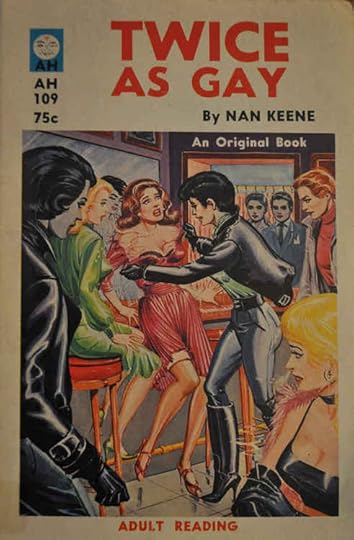
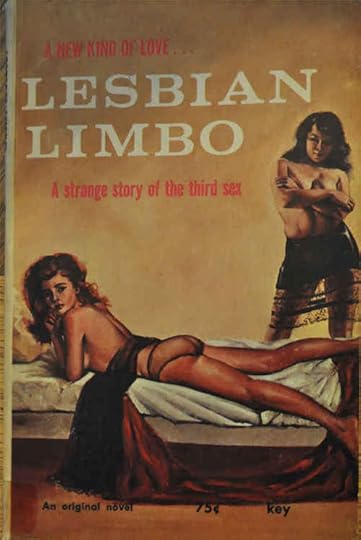
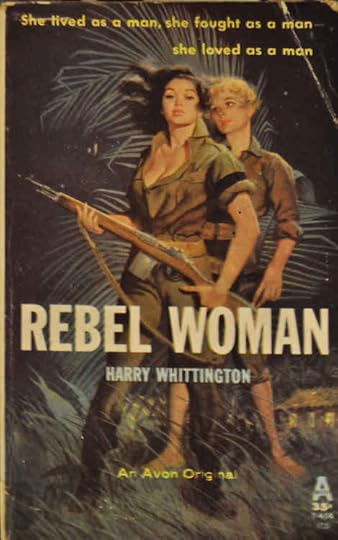
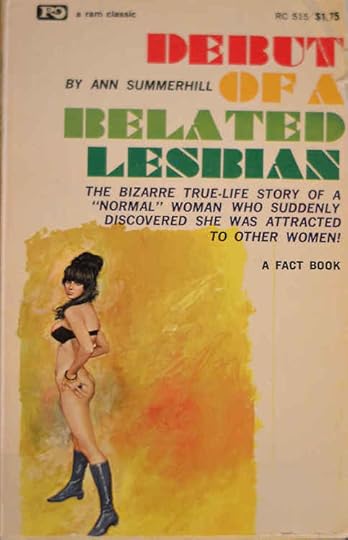
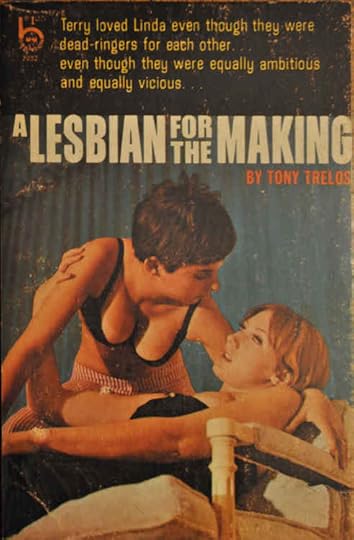
[image description: a set of eight lesbian pulp covers, all with ridiculously cheesy and dramatic covers and titles]
"I would say that the moment an object appears in a narrative, it is charged with a special force and..."
- Italo Calvino, Six Memos for the New Millennium (via mttbll)





